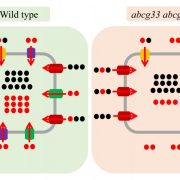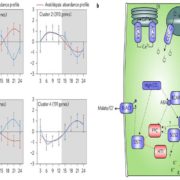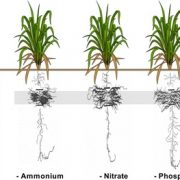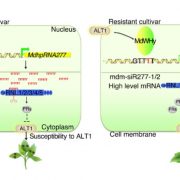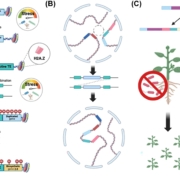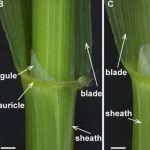Review: Celebrating 20 years of genetic discoveries in legume nodulation and symbiotic nitrogen fixation (Plant Cell)
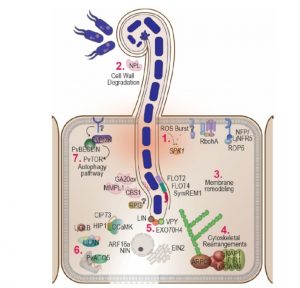 Legumes are important crops because they are protein-rich, as a consequence of symbiotic nitrogen fixation (SNF). In the past 20 years, through forward and reverse genetics more than 200 genes have been identified that are involved in this process, from recognition through nodule differentiation and metabolism. Roy et al. provide a comprehensive list of these genes from two model legume species, Medicago truncatula and Lotus japonicus and two crop species, Glycine max and Phaseolus vulgaris. While most SNF genes have homologs in non-legumes, many of these genes have evolved roles in SNF via gene family expansion and/or neofunctionalization, often resulting in nodule-specific expression. (Summary by Mary Williams) Plant Cell 10.1105/tpc.19.00279
Legumes are important crops because they are protein-rich, as a consequence of symbiotic nitrogen fixation (SNF). In the past 20 years, through forward and reverse genetics more than 200 genes have been identified that are involved in this process, from recognition through nodule differentiation and metabolism. Roy et al. provide a comprehensive list of these genes from two model legume species, Medicago truncatula and Lotus japonicus and two crop species, Glycine max and Phaseolus vulgaris. While most SNF genes have homologs in non-legumes, many of these genes have evolved roles in SNF via gene family expansion and/or neofunctionalization, often resulting in nodule-specific expression. (Summary by Mary Williams) Plant Cell 10.1105/tpc.19.00279


